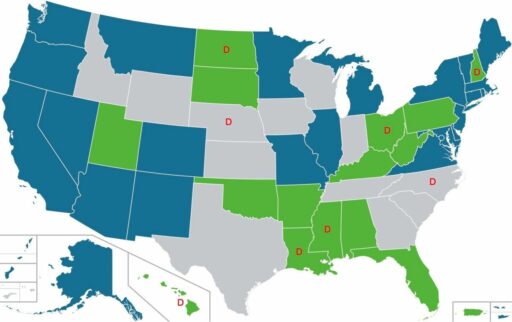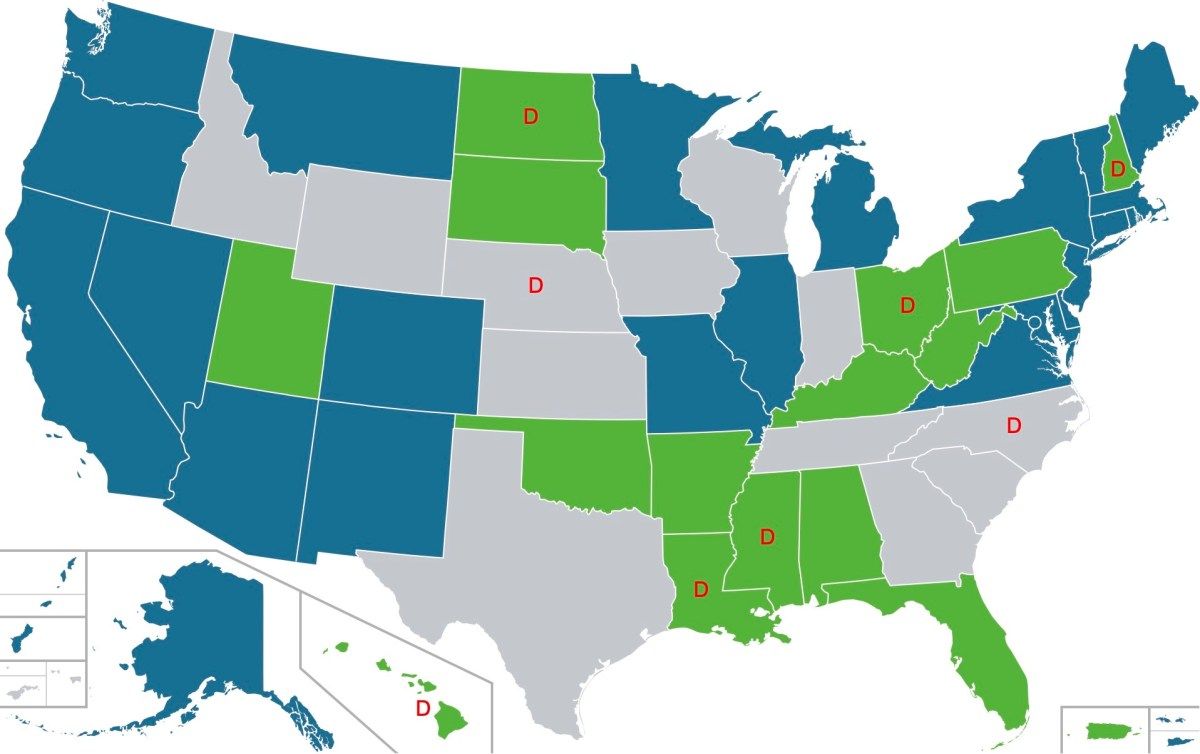Arizona’s marijuana laws have undergone significant changes in recent years, reflecting a broader national trend towards legalization and regulation. With both medical and recreational use now legal in the state, understanding the legal landscape is crucial for users, businesses, and policymakers. This article delves into the multifaceted aspects of Arizona’s marijuana regulations, public health and safety concerns, economic and taxation issues, legal challenges, and the potential future developments in legislation.
Key Takeaways
- Arizona has evolved its stance on marijuana, legalizing it for both medical and recreational use, aligning with a national shift towards acceptance and regulation.
- The state’s regulatory framework addresses various concerns including public health, underage access, environmental protection, and the impact on drugged driving incidents.
- Economic considerations are significant, with the marijuana industry contributing to tax revenue and facing challenges in banking due to federal-state legal discrepancies.
- Legal challenges persist, particularly with the conflict between state legalization and federal prohibition, creating risks for businesses and issues with interstate diversion.
- The future of marijuana legislation in Arizona may be influenced by national and international trends, public opinion, and advocacy, potentially leading to further reforms.
Overview of Arizona’s Marijuana Regulations

Historical Context of Marijuana Legislation
The legal history of cannabis in the United States has been marked by periods of strict regulations, beginning with the Marihuana Tax Act of 1937, which effectively banned its use nationwide. In Arizona, the journey of marijuana legislation has mirrored this national trend, with a gradual shift from stringent prohibition to a more nuanced legal stance.
The changing societal attitudes toward marijuana have paved the way for increased legalization, fostering a legitimate and regulated market.
Despite the evolving state laws, marijuana remains classified as a Schedule I controlled substance under federal law, highlighting a persistent conflict between state and federal positions. This classification is based on a historical belief in its potential for abuse and lack of accepted medical supervision.
Arizona’s legal landscape has been shaped by these national influences, but it has also carved its own path through voter initiatives and legislative reforms. The state’s approach to marijuana legislation continues to evolve, reflecting broader shifts in public opinion and economic considerations.
Current Status of Recreational and Medical Use
In Arizona, the status of marijuana use has evolved significantly, reflecting a broader national trend towards legalization. Recreational marijuana is legal for adults, with regulations governing age restrictions, permissible quantities, and designated consumption areas. Medical marijuana is also legal, allowing doctors to prescribe it for treating specific medical conditions, acknowledging its therapeutic potential.
The legal landscape for marijuana use in Arizona is as follows:
- Recreational Use: Legal for adults 21 and over
- Medical Use: Legal with a qualifying medical condition
- Possession Limits: 1 ounce of marijuana or 5 grams of concentrate for recreational use; 2.5 ounces every 2 weeks for medical use
Legalization in Arizona aims to strike a balance between individual freedom, public health, and economic considerations. It is essential for users to understand the legal framework to ensure a positive and responsible experience. The economic impact of legalizing marijuana has been significant, creating new industries and generating tax revenue.
The evolving legal status of marijuana in Arizona is part of a larger shift in societal attitudes. As the stigma surrounding marijuana use diminishes, its acceptance for both recreational and medical purposes continues to grow.
Regulatory Framework for Marijuana Businesses
In Arizona, the regulatory landscape for marijuana businesses is complex and multifaceted. Businesses must navigate a myriad of rules and restrictions to operate legally within the state. These regulations are designed to ensure public health and safety, prevent illegal activities, and maintain a controlled market environment.
Key considerations for marijuana businesses include:
- Obtaining the necessary licenses and permits
- Adhering to cultivation, production, and sales limits
- Implementing measures to prevent underage access
- Ensuring that products are not diverted to other states
- Avoiding involvement in criminal activities
The regulatory hurdles act as speed bumps, slowing down the progress of the legal marijuana market. Each rule and restriction is a potential roadblock that can impede business growth and operational efficiency.
Furthermore, the intersection of state and federal laws presents additional challenges, particularly in areas such as banking and interstate commerce. A recent bill approved by Arizona lawmakers aims to allow interstate marijuana commerce agreements, which would ensure enforceable public health and safety standards and include a system to manage and oversee such activities.
Public Health and Safety Concerns

Impact on Drugged Driving Incidents
The legalization of marijuana in Arizona has raised concerns regarding its impact on public safety, particularly in relation to drugged driving incidents. The increase in accessibility to marijuana has necessitated the implementation of stringent measures to monitor and reduce instances of impaired driving.
- Drugged Driving Arrests: There has been a noticeable shift in the pattern of DUI arrests post-legalization, with more cases involving marijuana.
- Public Awareness Campaigns: The state has launched educational initiatives to inform the public about the risks of driving under the influence of marijuana.
- Law Enforcement Training: Officers are being trained to better identify and handle cases of drugged driving.
While the full impact of marijuana legalization on drugged driving incidents is still being studied, preliminary data suggests a correlation that requires ongoing attention and action.
The state’s efforts to combat drugged driving include not only legal repercussions but also preventive measures. These initiatives aim to safeguard the community while respecting the legal rights of individuals.
Preventing Underage Access to Marijuana
In Arizona, stringent measures are in place to prevent underage access to marijuana. These regulations are critical to safeguarding youth from the potential adverse effects of early marijuana use.
Key considerations for businesses include:
- Ensuring that minors are not allowed to gain access to marijuana products.
- Verifying the age of customers to prevent sales to those under the legal age limit.
- Implementing robust security measures to deter any diversion of marijuana to minors.
The focus is on creating a responsible environment where marijuana is accessible only to those who meet the legal age requirement.
It is essential for businesses to comply with these regulations to maintain their licenses and contribute to public health efforts. Failure to adhere to these rules can result in severe penalties, including fines and potential closure of the establishment.
Environmental and Public Land Protection
The protection of Arizona’s environment and public lands is a critical aspect of the state’s marijuana regulations. Strict laws are in place to prevent the cultivation of marijuana on public lands, which could lead to environmental degradation and interfere with public land use. Additionally, the state is concerned with ensuring that marijuana cultivation and production do not contribute to waste issues or harm the environment through improper disposal practices.
- Ensuring marijuana is not grown on public lands
- Preventing environmental hazards from cultivation and production
- Regulating waste disposal to protect land and water sources
The focus on environmental protection within the marijuana industry is not only about compliance with laws but also about sustaining the natural beauty and resources of Arizona for future generations. The state’s approach includes oversight and penalties for non-compliance, aiming to balance industry growth with environmental stewardship.
Economic and Taxation Issues

The Business of Marijuana in Arizona
The marijuana industry in Arizona represents a significant and growing sector of the state’s economy. The unique legal status of marijuana creates a complex business environment, where compliance with state regulations is paramount. Businesses must navigate a myriad of legal considerations to ensure they operate within the law.
- Does the business prevent minors from accessing marijuana?
- Is the business inadvertently supporting criminal activities?
- Are there measures to prevent the diversion of marijuana to other states?
- How are businesses safeguarding against the use of medical marijuana as a facade for illegal activities?
- What steps are taken to dissociate from violence or the use of firearms in the trade?
- Are there protocols to mitigate the contribution to drugged driving or other public health issues?
The economic footprint of marijuana businesses is substantial, yet they face unique challenges due to the inability to deduct common business expenses. This is a consequence of federal laws that still classify marijuana as a controlled substance, leading to a higher effective tax rate compared to other industries. This financial hurdle is a critical issue for the sustainability and growth of the sector.
Tax Revenue and Allocation
In Arizona, the taxation of marijuana has proven to be a significant source of revenue, surpassing that of alcohol in some instances. The first quarter of 2023 marked a milestone where marijuana tax revenue outstripped that of alcohol in 10 states, including Arizona. This shift underscores the growing economic impact of the cannabis industry within the state.
| Quarter | Marijuana Tax Revenue | Alcohol Tax Revenue |
|---|---|---|
| Q1 2023 | $XX million | $XX million |
Note: Replace XX with actual revenue figures.
Legislative changes, such as Assembly Bill 195, have made substantial alterations to cannabis taxes, reflecting the evolving legal landscape. It is crucial for marijuana businesses to stay informed and compliant with tax laws to avoid penalties.
Ensuring that all taxes are properly accounted for in each sale is not just good practice; it is a legal necessity. Ignorance of tax obligations is not a defense, and failure to comply can result in businesses having to pay uncollected taxes.
The allocation of tax revenue from marijuana sales is a topic of ongoing discussion, with considerations for public health, education, and infrastructure. As the industry matures, the state’s approach to managing and distributing these funds will be pivotal in maximizing their benefit to society.
Challenges in Banking and Financial Services
Despite the legalization of marijuana in Arizona, businesses in the industry face significant banking and financial hurdles. Due to marijuana’s illegal status at the federal level, many banks are hesitant to provide services to cannabis-related businesses. This creates a complex landscape for companies that need to manage large amounts of cash, pay taxes, and handle payroll.
- Risk of federal action against banks serving the industry
- Difficulty in obtaining loans and credit lines
- Challenges in processing payments and managing cash flow
The absence of traditional banking services forces marijuana businesses to operate primarily in cash, which poses security risks and complicates financial management.
Furthermore, the lack of financial services has given rise to alternative financial solutions, but these often come with higher costs and increased operational complexity. The table below summarizes the key financial challenges faced by marijuana businesses in Arizona:
| Challenge | Impact |
|---|---|
| Limited banking access | High operational risk |
| Cash management difficulties | Security concerns |
| Alternative financial services | Increased costs |
The industry continues to advocate for changes that would allow for more secure and efficient financial operations, which are crucial for the growth and stability of the legal marijuana market.
Legal Challenges and Federal Implications

Conflict Between State and Federal Laws
Despite the legalization of marijuana for medical and recreational use in Arizona, a significant legal quandary persists due to its classification under federal law. Marijuana remains a Schedule I controlled substance, indicating a high potential for abuse and no accepted medical use according to the Controlled Substances Act (21 U.S.C. 801). This dichotomy creates a complex landscape for individuals and businesses involved with marijuana.
The implications of this conflict are multifaceted, affecting taxation, banking, and law enforcement practices. For instance, businesses dealing with marijuana face higher taxes and barriers to banking services due to the substance’s federal status. Moreover, the legal risks for these businesses are amplified by the potential for federal intervention.
The tension between state legalization and federal prohibition of marijuana presents ongoing challenges and uncertainties for all stakeholders involved.
While Arizona continues to navigate this legal conflict, the broader national conversation on marijuana legislation evolves, with states like Colorado and Oregon legalizing psychedelics, hinting at a potential shift in drug policy reform.
Legal Risks for Marijuana Businesses
Marijuana businesses in Arizona operate in a complex legal environment. Despite state legalization, cannabis remains illegal under federal law, posing significant risks. Business owners must navigate a labyrinth of regulations to maintain compliance and avoid severe penalties.
The dichotomy between state and federal positions on marijuana creates a precarious situation for businesses. They must be vigilant in their operations, ensuring adherence to all state-imposed security requirements and regulations.
One of the most pressing concerns is the risk associated with federal taxes. Cannabis businesses are subject to stringent tax regulations and often face higher rates due to the inability to deduct certain expenses. Proactive engagement with a cannabis tax attorney is crucial to mitigate these risks.
- Security requirements for the cannabis industry in Arizona are particularly demanding. Businesses grapple with securing their premises against unauthorized access and other physical security challenges.
- Compliance with state regulations is mandatory to avoid legal repercussions, including license revocation or criminal charges.
- Financial services remain a hurdle, as many banks are hesitant to engage with cannabis-related businesses due to federal illegality.
Interstate Diversion of Marijuana Products
The issue of interstate diversion of marijuana products remains a complex challenge for Arizona and other states where cannabis is legal. States along the west coast, including Arizona, have enacted laws to permit ‘controlled’ interstate commerce in anticipation of changes in federal law. However, the current federal classification of marijuana as a Schedule I controlled substance under the Controlled Substances Act (21 U.S.C. 801) creates a significant legal barrier.
The tension between state legislation and federal prohibition continues to pose risks for businesses and regulatory bodies. While states may authorize interstate cannabis activity, such authorization does not compel any party to participate, leaving a landscape of uncertainty.
The following table outlines the key aspects of this issue:
| Aspect | Description |
|---|---|
| Federal Law | Marijuana is a Schedule I controlled substance, indicating a high potential for abuse and no accepted medical use. |
| State Legislation | West coast states have passed laws for ‘controlled’ interstate commerce, pending federal law changes. |
| Legal Risks | Businesses face risks due to the conflict between state laws and federal prohibition. |
| Regulatory Challenges | States must navigate the complexities of authorizing activities that remain federally illegal. |
The Future of Marijuana Legislation in Arizona

Potential Reforms and Legal Developments
The landscape of marijuana legislation in Arizona is poised for significant changes as societal attitudes continue to evolve. The potential for reforms is closely tied to the broader national movement towards legalization, both for medical and recreational use. As other states progress in their marijuana policies, Arizona may follow suit, considering adjustments to its own legal framework to stay competitive and address public demand.
- Resentencing and expungement of prohibition-era convictions
- Expansion of the legal market and regulated access
- Adaptation of policies to support economic growth within the cannabis industry
The future of marijuana legislation in Arizona is not just about adapting to new norms but also about rectifying past injustices and fostering a responsible and economically viable industry.
With the federal landscape shifting, Arizona’s reforms may also include aligning state laws with potential federal changes. This could involve redefining regulatory boundaries and enhancing legal protections for businesses and consumers alike. The anticipation of DEA decisions and international trends, such as Germany’s recent legalization, suggests that Arizona’s marijuana policies will be part of a larger, dynamic dialogue on drug policy reform.
Impact of National and International Trends
The impact of national and international trends on Arizona’s marijuana legislation cannot be overstated. As global attitudes towards cannabis shift, Arizona finds itself at a crossroads, influenced by a variety of factors that shape its legal framework. The evolving consensus on marijuana’s role in medicine and society is prompting a reevaluation of existing laws.
- The rise of ESG (Environmental, Social, and Governance) considerations is pushing for more sustainable and socially responsible business practices in the cannabis industry.
- Economic incentives are driving innovation and research, further legitimizing marijuana’s place in pain management and therapeutic applications.
- International legal reforms, such as those in Canada and parts of Europe, offer models for regulation and market development that Arizona may consider.
The integration of global trends into Arizona’s marijuana policy is essential for its progression and alignment with broader societal changes.
As legal experts, like those from Dentons, suggest, criminal rates and sentencing principles should be adjusted in light of these trends. A regulated cannabis market could be the next step for Arizona, reflecting the insights from international experiences and expert analyses.
The Role of Public Opinion and Advocacy
The landscape of marijuana legislation in Arizona is not only shaped by legal precedents and economic considerations but also by the evolving public opinion and advocacy efforts. As individuals share their experiences, the stereotypes associated with marijuana use are gradually being dismantled, fostering a more accepting societal view.
The role of advocacy groups is pivotal in this transformation. These organizations work tirelessly to educate the public, support policy changes, and empower individuals to take action. Their efforts range from organizing events like the ‘420 Unity Day of Action’ to providing resources for those affected by marijuana laws.
Public awareness campaigns and educational initiatives have significantly contributed to the shift in perception. The increased understanding of marijuana’s potential therapeutic benefits, particularly for pain management, has led to a surge in demand for legal products. This demand is further amplified by the growing acceptance of cannabis in society.
Advocacy is not just about raising voices; it involves substantial personal investment and commitment. Stories of individuals funding billboards and campaigning for legal changes underscore the deep personal stakes involved in the fight for marijuana reform.
Conclusion
In conclusion, Arizona’s marijuana laws reflect a broader trend of evolving legal landscapes across North America. While states like Arizona have embraced both medicinal and recreational use, challenges remain in navigating the complex interplay between state and federal regulations, public health concerns, and the dynamic competitive market. Questions around drugged driving, environmental impact, and the diversion of marijuana to minors or out of state are critical considerations for policymakers. The competitive landscape in Arizona is influenced by regulatory environments, product diversity, and brand positioning, with ongoing developments shaping the market. As the legal framework for marijuana continues to develop, it is imperative for businesses and consumers alike to stay informed and compliant with the current laws to ensure the responsible growth of the industry.
Frequently Asked Questions
What is the current status of recreational and medical marijuana use in Arizona?
In Arizona, both recreational and medical marijuana use are legal. Adults aged 21 and over can legally use, possess, and grow marijuana within certain limits, while medical use is permitted for patients with qualifying conditions.
How does Arizona regulate marijuana businesses?
Marijuana businesses in Arizona must adhere to a regulatory framework that includes licensing requirements, cultivation and sale limits, and compliance with health and safety standards.
What measures are in place to prevent underage access to marijuana in Arizona?
Arizona has implemented strict ID checks, advertising restrictions, and penalties for businesses that sell marijuana to minors in order to prevent underage access.
How is marijuana tax revenue allocated in Arizona?
Tax revenue from marijuana sales in Arizona is allocated to various public services, including education, public safety, and health programs.
What are the legal risks for marijuana businesses due to the conflict between state and federal laws?
Marijuana businesses in Arizona face legal risks such as banking restrictions, lack of federal protection, and potential prosecution due to the ongoing conflict between state legalization and federal prohibition.
How might national and international trends affect the future of marijuana legislation in Arizona?
National and international trends towards legalization and market expansion could influence Arizona to further reform its marijuana laws, potentially leading to changes in regulation, taxation, and public opinion.





